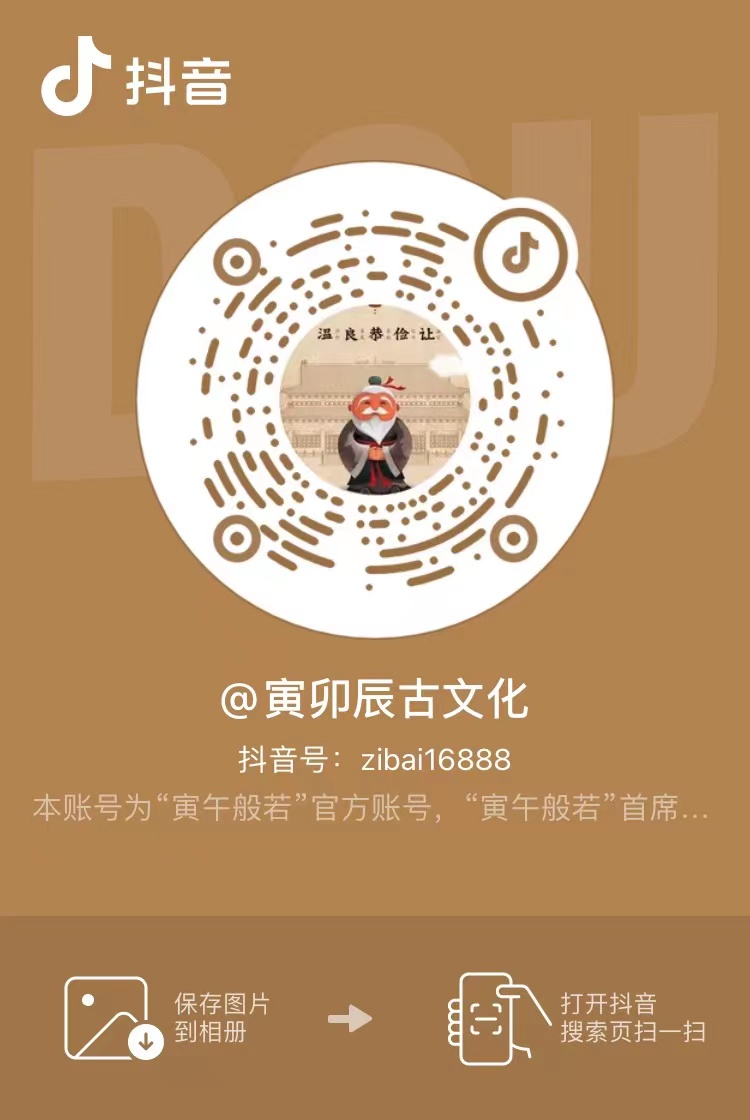· 8~14 章 ·
上善若水。水善利万物而不争,处众人之所恶,故几于“道”矣。居善地,心善渊,与善仁,言善信,正善治,事善能,动善时。夫唯不争,故无尤。
Chapter VIII
The highest good is like water. Water benefits everything by giving without taking or contending. It likes the place others dislike, so it follows closely the divine law. 持而盈之,不如其已;揣而棁之,不可长保。金玉盈室,莫之能守;富贵而骄,自遗其咎。功遂身退,天之道也。
Chapter IX
A whetted and sharpened sword cannot be sharp for ever.A houseful of gold and jade Arrogance of wealth and power conforms to the divine law.载营魄抱一,能无离乎?專气致柔,能婴儿乎?涤除玄览,能无疵乎?爱民治国,能无以知乎?天门开阖,能为雌乎?明白四达,能无以为乎?生之畜之,生而不有,为而不恃,长而不宰,是谓玄德。
Chapter X
Can the controlled breath Can the purified mental mirror Can a people-loving ruler not interfere Can the lower doors not open and close as the upper doors in heaven? Is it possible to understand and make understand benefit but do not interfere, lead but do not rule, Such is the mysterious virtue.三十辐共一毂,当其无,有车之用也。埏埴以为器,当其无,有器之用也。凿户牖以为室,当其无,有室之用也。故有之以为利,无之以为用。
Chapter XI
Thirty spokes radiate from a hub. When there is nothing in the hub, Turn clay to make a vessel. Build a room with doors and windows. the room can be used as dwelling. When there is something, it is beneficial; When empty, it is useful.五色令人目盲,五音令人耳聋,五味令人口爽,驰骋畋猎令人心发狂,难得之货令人行妨。是以圣人之治也,为腹不为目。故去彼取此。
Chapter XII
The five colors may confuse the eye. The five sounds may deafen the ear. The five tastes may spoil the palate. Riding and hunting may madden the mind. Rare goods may tempt one to do evil. Therefore the sage satisfies the belly rather than the eye. He prefers the former to the latter.宠辱若惊,贵大患若身。何谓宠辱若惊?宠为下,得之若惊,失之若惊,是谓宠辱若惊。何谓贵大患若身?吾所以有大患者,为吾有身;及吾无身,吾有何患!故贵以身为天下,若可寄天下;爱以身为天下,若可托天下。
Chapter XIII
Praise and blame disturb the mind; Fortune and misfortune affect the body. Why is the mind disturbed? Praise and blame are like ups and downs. The mind is troubled with rise and fall. So is it troubled by praise and blame. How can fortune and misfortune affect the body? If you value the world as your body, then the world may confide in you. If you love the world as your body, then the world may be entrusted to you.视之不见名曰夷,听之不闻名曰希,搏之不得名曰微。此三者不可致诘,故混而为一。一者,其上不皦,其下不昧,绳绳兮不可名,复归于无物。是谓无状之状,无物之象;是谓惚恍。迎之不见其首,随之不见其后。执古之道,以御今之有,以知古始,是谓道纪。
Chapter XIV
What cannot be seen is invisible, What cannot be heard is inaudible, What cannot be touched is intangible. These three, unfathomable, Like a nameless endless string, It seems to be and not to be. Before it, you cannot see its front; after it, you cannot see its rear. Ruling over the present with the law of the past, you can know the beginning of antiquity. Such is the rule of the divine law.

版权声明:本站部分内容由互联网用户自发贡献,文章观点仅代表作者本人。本站仅提供信息存储空间服务,不拥有所有权,不承担相关法律责任。如发现本站有涉嫌抄袭侵权/违法违规的内容, 请拨打网站电话或发送邮件至1330763388@qq.com 反馈举报,一经查实,本站将立刻删除。
文章标题:《道德经》中英对照(8-14章)发布于2024-05-02 11:09:23







